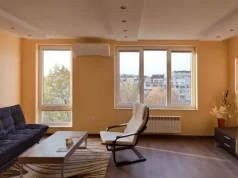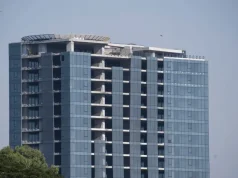Everything About Maintenance Charges on Flats You Must Know
A flat is an investment in a community, it’s a way of life and the future. It’s more than just a piece of real estate. Purchasing an apartment is a significant life event representing security and a place to call home.
However, along with the joys of ownership come responsibilities and one crucial aspect is understanding maintenance charges. These charges, often dismissed as routine payments, are the financial lifeblood ensuring the sustained well-being and functionality of your dwelling. In this in-depth blog, we uncover how is maintenance charges for flats calculated.
We will also cover the layers of complexity surrounding maintenance charges on flats. This will help you gain a detailed and real-world understanding that goes beyond the ordinary.
Also Read: Affordable flats for sale in manyata tech park
Why It’s Important to Pay Maintenance Charges?
Maintenance charges on flats are a financial obligation and a contractual commitment embedded in the builder-buyer agreement. As per Section 6 of the RERA Act 2016, every allottee entering such an agreement must pay these charges promptly. The significance of timely payment lies in the array of benefits it brings:
- Streamlined Management: Maintenance fees relieve homeowners from the hassle of managing essential services independently.
- Comprehensive Coverage: Telephone lines, electricity supply, parking allocation, water supply, and security arrangements are seamlessly handled by the maintenance team in exchange for these charges.
- Builder-Buyer Agreement: Maintenance charges are a stipulated part of the contract between the builder and the buyer.
Also read: What is condominium definition and advantages
Understanding the Components
Maintenance charges on flats encompass myriad services vital for the well-being of individual units and communal areas. These charges, payable monthly or annually, contribute to the overall upkeep of the residential complex. The key components include:
Service Fees
- Covering essential services like electricity, housekeeping, and security.
- Equitably distributed among all flat owners.
Repairs and Maintenance
- Encompassing the upkeep of lifts and general building maintenance.
- Calculated uniformly for flats of the same size.
Parking Fees
- Allocated based on individual usage of the society’s parking spaces.
Water Charges
- Tailored to the water consumption of each flat.
Sinking Fund
- Reserved for unforeseen emergencies requiring immediate financial attention.
Insurance Fees
- Applicable to flats utilized for commercial purposes.
Lease Rent:=
- Calculated per square foot for designated areas.
Non-Occupancy Fees
- Applicable to unoccupied or rented flats.
Other Fees
- We are finding miscellaneous maintenance charges on flats such as group festival celebrations and non-agricultural tax.
Also read: Meaning of Independent House
Criteria for Maintenance Charges on Flats
Understanding the types of maintenance charges and how they apply is essential:
Service Charges
- Equally divided among all apartments.
Building Maintenance and Repair Charges
- Calculated at 0.75% of each apartment’s construction cost.
Parking Charges
- Based on the allotted parking lots.
Sinking Fund
- A minimum of 0.25% of each flat’s construction cost.
Non-Occupancy Charges
- Set at 10% of service charges for unoccupied or rented flats.
Water Bills and Property Taxes
- Determined by the consumption of each apartment.
How are Maintenance Charges on Flats Calculated?
Understanding the methods employed in calculating maintenance charges is pivotal for homeowners. Here are three prevalent approaches:
Per Square Feet Method:
This method is commonly adopted in societies with varying sizes and configurations of flats. For instance, if the maintenance charge is Rs 2 per square foot, the monthly charge for a 1,000-square-foot flat would be Rs 2,000.
Equal Maintenance Charges:
When all flats in a society are nearly the same size, equal maintenance charges are applied. These charges are typically calculated and collected every month.
Hybrid Maintenance Charges:
Some societies opt for a hybrid method that combines equal maintenance and per-square-feet calculation aspects. Common amenities like parking lots, lifts, and swimming pools incur equal charges, while charges based on property size are applied separately.
Also Read: What is plinth area?
RERA Rules for Apartment Maintenance Fees
Adherence to RERA rules is essential for both builders and homeowners. Here are key regulations:
- Maintenance Agreement: The buyer and the builder must sign a formal maintenance agreement.
- Payment Schedule: The parties must decide whether to pay the maintenance fees on a monthly, quarterly, semi-annual, or yearly basis.
- Disclosure: The maintenance agreement must specify and disclose the amount and frequency of maintenance fee payments.
- Builder’s Responsibility: Builders pay maintenance fees until the property is handed over to the buyer.
- Payment Duration: Builders may request maintenance fees for 12 to 24 months at the time of possession.
- Ownership Transition: After taking ownership, the owner is solely responsible for maintenance fees, while tenants may be responsible if specified in the lease agreement.
Also Read: what is rental yield calculator?
Timeline for Monthly/Quarterly/Annual Maintenance Charges Payment
Factors like resident preference and billing cycles determine the frequency of maintenance charge payments. Societies consider:
- Resident Comfort: Monthly, quarterly, semi-annual, or annual payments based on resident preference.
- Billing Cycles: Aligning payment timelines with major society expenses bills.
- Payment Method: Opt for a user-friendly, low-administration payment method.
GST on Apartment Maintenance Charges
Understanding the impact of Goods and Services Tax (GST) on maintenance charges is crucial in the contemporary tax landscape.
- The threshold for GST:
- Applicable if annual maintenance costs exceed Rs.20 lakhs.
- Understand the threshold and its implications for property owners and residential associations.
- GST Rate:
- Monthly contributions exceeding Rs.7500/member to the Resident Welfare Association (RWA) attract an 18% GST rate.
- Delve into the nuances of GST rates and how they are applied to different categories of maintenance charges.
Key Points to Remember About Maintenance Fees
In summary, homeowners should keep these key points in mind:
- Request a Breakdown: As a resident, you can request a breakdown of your monthly, quarterly, or annual maintenance charges.
- Payment Information: Obtain detailed information from the service team about available modes of maintenance fee payment.
- Timely Payments: Ensure timely payments and obtain receipts for accountability.
- Commercial Property Considerations: Maintenance fees for commercial properties are mostly higher than those for residential properties.
Additional Insights
Forecasting Future Expenses:
Understanding maintenance charges on flats is not just about the present; it’s about preparing for the future. Consider discussing with your residential community to anticipate potential developments and their associated costs.
Sustainability Initiatives:
As environmental consciousness grows, inquire about any sustainability initiatives covered by maintenance charges. From energy-efficient lighting to waste management, these initiatives contribute to ecological well-being and potential cost savings.
Engaging with Community Forums:
Active participation in community forums can provide valuable insights into utilizing maintenance charges. It’s a platform to voice concerns, suggest improvements, and foster community among residents.
Conclusion
Maintenance charges on flats are a multifaceted aspect of homeownership that demands attention and understanding. Propex, committed to enhancing the living experience for our residents, places great emphasis on transparency, communication, and compliance with regulatory standards.
At Propex, an informed resident is a satisfied resident. Now you are armed with how is maintenance charges for flats calculated. In the homeownership journey, let knowledge guide, and Propex be your trusted companion.
Welcome to a world where your living experience is defined not just by walls and roofs but also by the collective spirit of a well-maintained and vibrant community.





